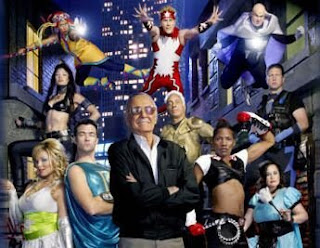
"The Nation that makes a great distinction between its scholars and its warriors will have its thinking done by cowards and its fighting done by fools." Thucydides (c. 460-400 B.C.).
In this quote, the Greek historian is trying to explain how Athens, the world's first democracy, has lost a war with Sparta, a smaller nation that makes absolutely no distinction between scholars and warriors.
The debate is raging again about the ban many liberal arts colleges have on ROTC. ROTC is a program where the US military pays a student's college tuition. The student is commissioned as an officer upon graduation and must serve on active duty for 4-8 years. During the Vietnam war, many top liberal arts colleges baned ROTC and that ban remains in effect today.
I re-invented ROTC at Emory University during my freshman year in 1982. I drove across town to Georgia Tech and walked into the Navy ROTC building and asked for a scholarship. I was the first ROTC student at Emory since Vietnam. The following year, four more Emory students join Navy ROTC: eight more the year after that. Then the Emory faculty voted to ban students from joining ROTC through Georgia Tech and there were no more Emory ROTC students after the thirteen of us.
While at Emory, I attend a new class called "Perspectives on Nuclear War". It consisted of series of lectures from the heads of various departments: Physics, English, History, Political Science, Medicine. President Carter gave a lecture to this class. At the beginning of the class, we were asked if we knew of anyone who would be a good speaker for the class. I said that the commander of my ROTC unit was a ballistic missile submarine captain and I could ask him to speak. The faculty was not interested. The reason they gave was that the military was under civilian control.
This was at a time of high Cold War tension. Russia had almost launched a first strike due to misinterpreting a NATO war game (we did not know this at the time). Communication with our handful of ballistic missile submarines at sea is extremely limited and unreliable. In a war, it would be men like the commander of my ROTC unit that would be making the critical decisions.
The military needs liberal arts educated officers and ROTC is the most effective program for attracting the brightest minds to serve. Otherwise, the military will be totally dominated by the graduates of the military academies. I served with many graduates of Annapolis. They generally thought very differently from me. For starters, they were all trained as engineers which is valuable since our Navy relies heavily on technology. But they were generally poor at thinking creatively and at dealing with people. This dynamic between the Annapolis officers and the ROTC officers is the theme in several classic Hollywood films: The Caine Mutiny, Mr Roberts, Crimson Tide. The military needs the ROTC officers in order to adapt quickly to changing situations in war. Otherwise you end up with situations like leading charges against entrenched machine guns in WWI or having your fortresses bypassed by a blitzkrieg in WWII.
It is ironic that the military understands the need for ROTC while the faculty of the liberal arts universities, who profess to be open minded, do not.








